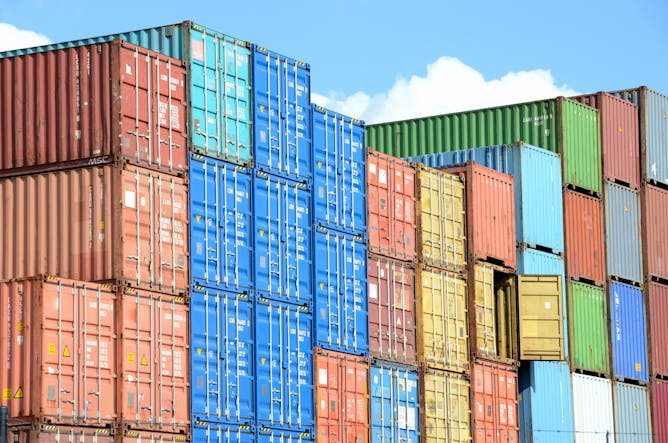|
Canada has been slow to adopt supply chain legislation compared to other countries like Australia, the United Kingdom and the United States. A new piece of legislation, Bill S-211, aims to bring Canada in line with global regulatory trends. The bill is slated to become law on Jan. 1, 2024.
Once the bill comes into effect, Canadian companies and government institutions will be required to submit an annual report about how they are addressing modern slavery in their supply chains.
Today in The Conversation Canada, Kam Phung and Genevieve LeBaron from Simon Fraser University write about the importance of Bill S-211, known colloquially as the Modern Slavery Act. The bill will ensure businesses that ignored modern slavery in the past are now obligated to address it.
Although the new bill is a step in the right direction, Phung and LeBaron write, the current legislation still has pitfalls. Issues like the limited effectiveness of current transparency laws, flawed auditing tools and harmful business practices still need to be addressed for modern slavery to be effectively dealt with.
Also today:
|

Canada has joined a growing list of nations that have introduced legislation to combat modern slavery in supply chains.
(Paul Teysen/Unsplash)
Kam Phung, Simon Fraser University; Genevieve LeBaron, Simon Fraser University
If we have learned anything from the fight against modern slavery, it is that addressing the issue takes extensive time, resources and long-term commitments.
|

Some people don’t have the ability to create mental images, a condition called aphantasia, but can still experience visual imagery in their dreams.
(Shutterstock)
Emiko Muraki, University of Calgary; Penny Pexman, University of Calgary
People with aphantasia are unable to deliberately bring to mind mental images. Understanding the mechanisms of aphantasia reveals that different types of cognition exist.
|

U.S. President Joe Biden goes on a bike ride in Rehoboth Beach, Del., on May 14, 2023.
(AP Photo/Carolyn Kaster)
Sam Routley, Western University
The Republican and Democratic parties are increasingly coming to embrace distinctive and mutually exclusive visions with no possibility for common ground. What does that mean for Joe Biden in 2024?
|

Involving young patients and their parents or caregivers can help bring new research evidence into clinics.
(Pexels/Christina Morillo)
Nicole MacKenzie, Dalhousie University
Three factors that can speed up adoption of clinical research discoveries are context, tailoring resources and efficient knowledge sharing.
|

The 2023 G20 logo on display in New Delhi, India. By attending events in Kashmir, G20 delegates are tacitly condoning India’s colonial control of the region.
(AP Photo/Altaf Qadri)
Omer Aijazi, University of Victoria
In Indian-administered Kashmir, the Indian government is using tourism as a tactic to strengthen its colonial control of the region.
|

Le ministre de l'Éducation du Québec, Bernard Drainville, dépose son nouveau projet de loi visant à réformer le système d'éducation, le 4 mai 2023, à l'Assemblée nationale.
La Presse canadienne/Jacques Boissinot
Olivier Lemieux, Université du Québec à Rimouski (UQAR); Jean Bernatchez, Université du Québec à Rimouski (UQAR); Simon Viviers, Université Laval; Wilfried Cordeau, Université de Montréal
La réforme Drainville renforce le lien d’autorité du ministre et conduit à l’élimination de contre-pouvoirs agissant comme « chiens de garde » du système scolaire.
|
Business + Economy
|
-
John W. Diamond, Rice University
Major players in the financial system are pondering the unthinkable as the US inches closer to an unprecedented default.
|
|
COVID-19
|
-
Albena Yaneva, University of Manchester
The COVID pandemic has led to a radical rethinking of the limits of architecture and tested the skill and innovation of architects like never before.
|
|
Health
|
-
Antonina Mutoro, African Population and Health Research Center
Biological and chemical substances are the most common food contaminants and account for over 200 food-borne illnesses.
|
|